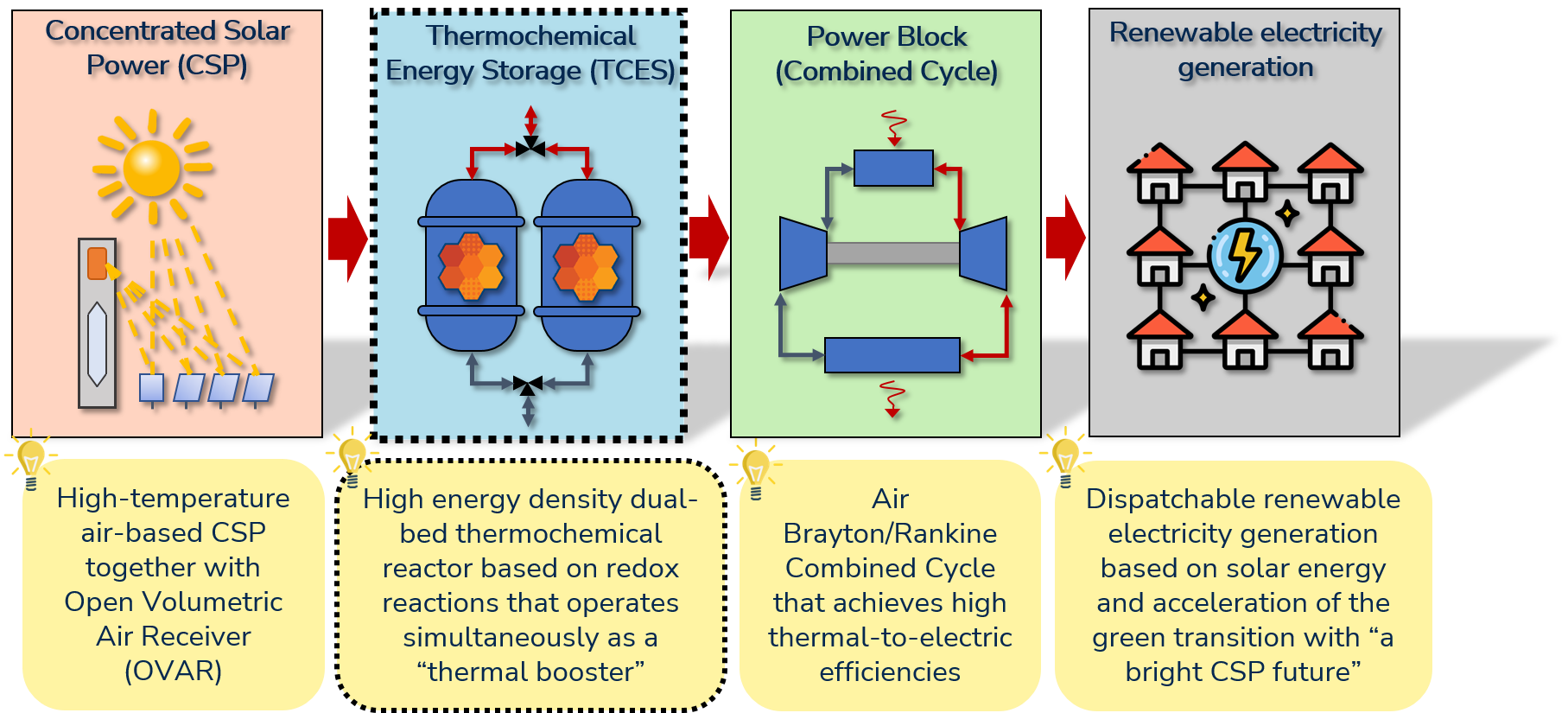Air-Brayton cycle concentrated solar power future plants via redox oxides-based structured thermochemical heat exchangers/thermal boosters
ABraytCSPfuture sets forth an innovative, carbon-neutral way for implementing into future air-operated Concentrated Solar Power (CSP) plants the inherently much more efficient air-Brayton gas turbine power generation cycles in order to achieve higher solar-to-electricity efficiencies, vital for competitiveness of CSP and non-reachable by either PVs or molten salts and thermal oils, significantly increasing in parallel the plants’ storage capability.
Both these functionalities will be made possible by developing and demonstrating the integrated operation of a first-of-its-kind, compact, dual-bed thermochemical reactor/ heat exchanger design, comprised of non-moving, flow-through porous ceramic structures (honeycombs or foams) based on earth-abundant, inexpensive, non-toxic oxide materials, capable of performing simultaneously the following:
- Transferring heat from a non-pressurized air stream to a pressurized one, while operating simultaneously as a “thermal booster”, raising the temperature of the pressurized stream to levels required for gas turbine air-Brayton cycles.
- Increasing significantly the volumetric solar energy storage density of such air-operated CSP plants by rendering their current sensible-only regenerative storage systems to hybrid sensible-thermochemical storage ones, within the same storage volume.
Both these functionalities will be materialized by exploiting reversible reduction/oxidation reactions of such oxides in direct contact with air, accompanied by significant endothermic/exothermic heat effects. The first one in particular, will be achieved by performing the reduction of these oxides with solar-heated air streams under atmospheric pressure but their exothermic oxidation with pressurized air streams. The proposed technology is set forth by an interdisciplinary partnership spanning the entire CSP value chain, comprised of leading research centres, universities, innovative SMEs and large enterprises, including ancillary services providers and technology end-users.
